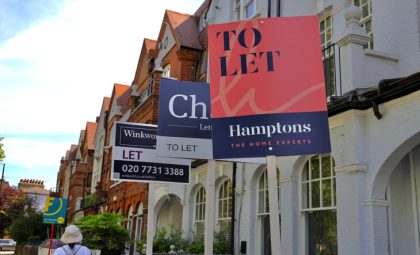‘Careful what you wish for’ when reforming property taxation warns Rightmove
While portal's CEO says measures will go down well among first time buyers and 'middle Britain', the rumoured changes risk stalling the overall property market.

Rightmove has urged the Government to proceed with care following last week’s rumoured changes to property taxation.
The ‘leaked’ policy changes included turning Stamp Duty into a tax on vendors; an annual property tax on homes worth over £500,000; and charging Capital Gains Tax (CGT) on homes sold for more than £1.5 million.
Despite many agents applauding a possible end to Stamp Duty in its current form, Rightmove has warned the Chancellor ‘to be careful what she wishes for’ because, its CEO Johan Svanstrom (main inamge) says, the changes may have unintended consequences while also not raising significantly increased sums for HM Treasury.
He points out that while the changes would be good for first time buyers and those buying homes under £500,000 – who would not pay any tax on their home move – and those living outside of Southern England and London’s housing markets – it would risk stalling the overall housing market and dissuade even more people from downsizing.
“It’s encouraging that changes to Stamp Duty are being considered as there are many ways the current system can be improved or made fairer,” he adds.
His portal’s data speaks for itself – a third of all homes listed for sale in England at the moment are for properties over £500,000, a figure that rises to 59% in London but just 8% in the North East.
Mansion tax
A ‘mansion tax’ in the form of CGT paid on homes sold for over £1.5 million would affect a regionally different swathe of properties too – 11% in London but just 0.1% in the North East.
The changes are also likely to be most popular with first time buyers who, as well as enjoying more favourable lending criteria at the moment, would also be able to buy their first home without paying any tax on the transaction.
But Svanstrom warns: “If the responsibility for property taxes shifts onto the sellers’ side, the government will need to really think through how this transition will be phased in to avoid slowing down the mass market.
“Those who have recently paid stamp duty as a buyer and would face paying property tax as a seller in the future would clearly be at a disadvantage.
“As we’ve seen around moments such as Stamp Duty changes, we could see some distortion in the market for properties at or close to the £500,000 mark if this does end up being the threshold, with movers at this price range understandably keen to avoid the new tax if they can.”











The Government need to be extremely careful when considering changing property tax. A large amount of homeowners have paid Stamp duty and to be asked to pay a seller’s tax would make it extremely unfair, being hit at both ends. Hundreds of thousands of homeowners have been paying off their mortgages, spending large sums of money upgrading their homes. Their home represents the majority of their savings and their future pension. When coming to retirement and having paid off their mortgages for 20-40 years, budgeted for retirement, where will they find funds to pay off annual property taxes? Our home is our castle and that is not just physically but financially to!